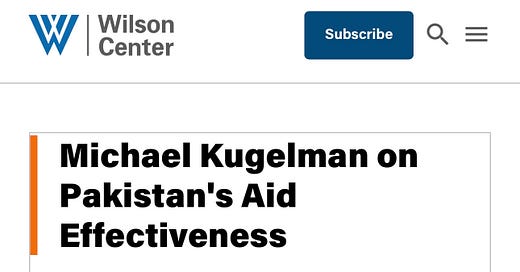Recent investigations and reports have shed light on significant issues concerning U.S. involvement in Pakistan’s internal affairs, including substantial foreign aid mismanagement and alleged interference in the country’s democratic processes.
USAID’s $840 Million Education Initiative in Pakistan
The United States Agency for International Development (USAID) allocated approximately $840 million to Pakistan for educational development. However, reports indicate that a significant portion of these funds did not achieve their intended outcomes. Specifically, $136 million was designated for constructing 120 schools that reportedly were never built. Additionally, $20 million was spent on educational television programs aimed at children who lacked access to physical schools, which themselves were nonexistent. These revelations point to serious concerns beyond mere financial mismanagement, suggesting deeper systemic issues in the execution and oversight of foreign aid projects.
Allegations of U.S. Involvement in the Ouster of Imran Khan
In August 2023, The Intercept published a report based on a leaked Pakistani diplomatic cable dated March 7, 2022. The cable details a meeting between the Pakistani ambassador to the United States and U.S. State Department officials, during which the U.S. expressed dissatisfaction with then-Prime Minister Imran Khan’s neutral stance on the Russian invasion of Ukraine. A U.S. diplomat reportedly stated that “all will be forgiven” if the no-confidence vote against Khan succeeded. This disclosure has fueled allegations that the U.S. played a role in facilitating Khan’s removal from office.
Roles of Husain Haqqani and Michael Kugelman
Husain Haqqani, a former Pakistani ambassador to the U.S., has been a controversial figure in Pakistan’s political landscape. He was implicated in the “Memogate” scandal, wherein he was accused of authoring a memo seeking U.S. intervention to prevent a military coup in Pakistan. Although a judicial commission declared him guilty of authoring the memo, Pakistan’s Supreme Court later noted that the commission’s findings were merely opinions. Haqqani has since been involved in lobbying efforts and has been accused by former Prime Minister Imran Khan of lobbying against his government in the U.S.
Michael Kugelman, Deputy Director of the Asia Program at the Wilson Center, is a prominent analyst on South Asian affairs. Kuggleman’s analyses and commentaries are influential in shaping U.S. perspectives on the region. Some critics argue that such influence can indirectly affect U.S. foreign policy decisions, which may have implications for Pakistan’s internal politics. This begs the question; what role did Kugleman play in lobbying USAID through Wilson Center to release the funds to Pakistani schools that were never built?
Conclusion
The interplay between foreign aid mismanagement and alleged external interference in Pakistan’s political processes underscores the complexities of international relations and the importance of transparency and accountability. These developments have significant implications for Pakistan’s democratic institutions and its relationship with the United States.





